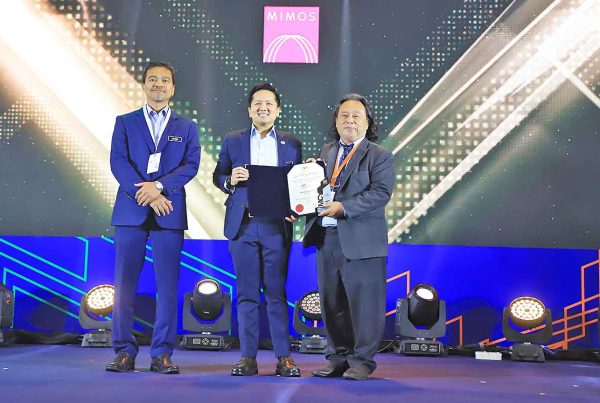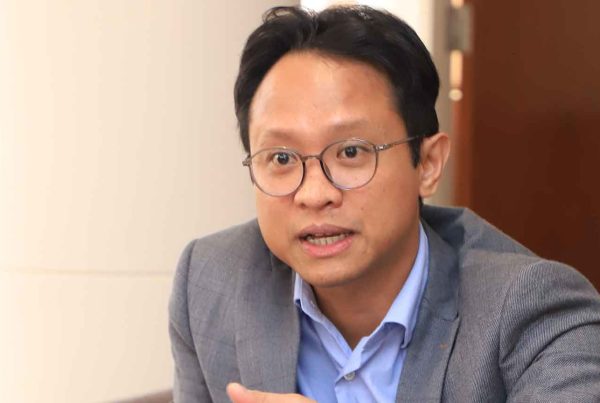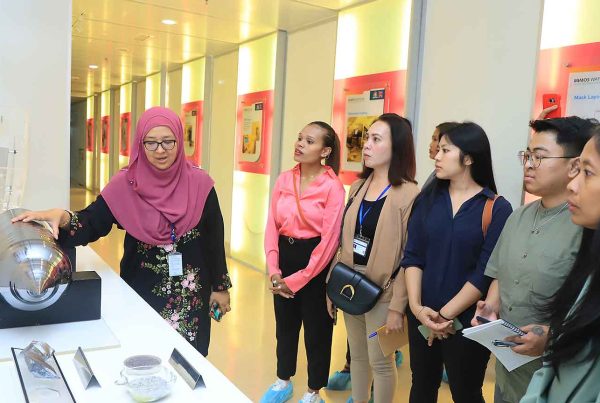KUALA LUMPUR, 12 Dec 2019: Malaysian industries need to invest more in sustainable solutions if they want to compete in the international market, Deputy Minister of International Trade and Industry (MITI) Dr Ong Kian Ming said.
He mentioned this at a dinner hosted by national applied research and development centre, MIMOS, marking the successful completion of a pilot project on traceability of sustainable palm oil in collaboration with P&G, a global brand leader in fast-moving consumer goods (FCMG). The dinner was also attended by project partners Conservation International, World Wildlife Fund (WWF) and Malaysia Institute of Supply Chain Innovation (MISI).
“I see a fruitful partnership between P&G and MIMOS involving Industry 4.0 technologies such as Big Data, Blockchain and Internet of Things, in developing the Oil Palm Data Warehouse for sustainability.
“This is something which MITI wants to see much more of. Such a project would benefit our smallholders by increasing trust in their sustainability practices,” Dr Ong said.
These efforts are in line with the fact that the Government has made it mandatory for oil palm growers in Malaysia to obtain Malaysian Sustainable Palm Oil (MSPO) certification, with the aim of enabling growers to eventually attain RSPO certification for assuring international markets of their sustainability.
In 2017, P&G started a collaboration with MIMOS to create an Oil Palm Data Warehouse and analytics system using locally-developed Big Data Analytics and Blockchain technology to optimise the efficiency of data collection process by industry.
The system facilitates the tracking of private smallholders’ interactions with dealers as well as the movement of fresh fruit bunches (FFBs) produced from the farms. To date, over a thousand smallholders in Johor have been engaged and enabled to apply this traceability solution through the collaboration.
The traceability platform establishes relationships between P&G palm suppliers to palm oil mills and refineries. Through this system, P&G is able to identify areas of social and environmental risks along their supply chain; they subsequently can plan and monitor follow-up actions for improvement and progress.
P&G director of global sustainability Jack McAneny said the project would be one of the key enablers for the entire smallholder effort in Malaysia, with the goal to improve yields by 30-50 percent, improve the livelihood of the smallholders, and ensure sustainable practices in the P&G palm oil supply chain.
“The project will bring significant benefits, consistent with P&G’s theme of collaborating to drive impact at scale,” McAneny said at the same event. P&G is committed to the responsible sourcing of palm oil and has declared livelihood improvement for the palm oil smallholders as one of its Ambition 2030 environmental sustainability goals.
Recognising the value of the project, Dr Ong urged for it to be expanded nationwide and to other supply chains. “I look forward to this project continuing to the next phase and expanding nationwide. I also hope this data warehouse and supply chain analytics system can be adopted by industry players and applied in other supply chains beyond oil palm,” Dr Ong said.
MIMOS is Malaysia’s national applied research development centre and is open to collaboration for commercialisation of solutions developed in partnership with the private sector.
-ends-




